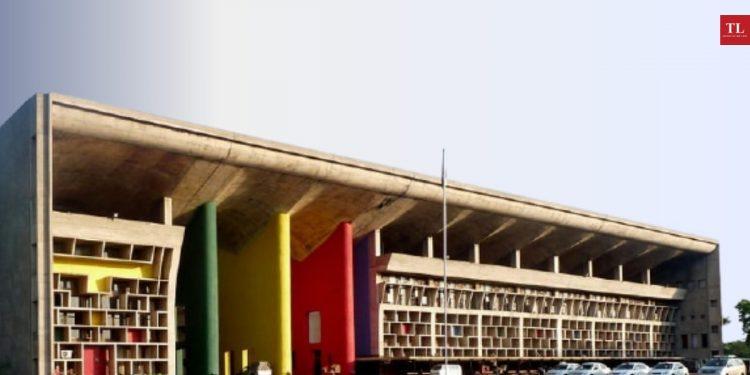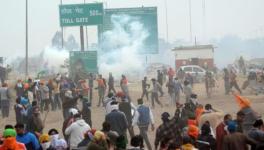Punjab and Haryana High Court Holds Solitary Confinement of Criminals in Punjab Jails Illegal and Violative of Fundamental Rights

Punjab, on an interim basis, made some relaxation in the confinement timings of certain dreaded criminals pursuant to an order by a single-judge bench of the Punjab and Haryana High Court. But the state appears to be torn between continuing violence inside jails and its harsh security arrangements in the name of improving jail discipline and keeping a check on dreaded criminals, writes VIVEK GUPTA, reporting from Chandigarh.
—–
“A society that believes in the worth of individual beings can have the quality of its belief judged, at least in part, by the quality of its prison and probation services and of the resources made available to them.”
Justice Sudhir Mittal of the Punjab and Haryana High Court used this extract from a White Paper titled, “People in Prison”, published by the British Government in November 1969 as the opening lines of his interim order on July 1 holding illegal the quasi-solitary confinement of hardcore criminals lodged in Punjab prisons.
The High Court’s order came in response to a writ petition filed by seven out of 42 dreaded and notorious criminals who were shifted from different jails in Punjab to Bathinda’s central jail earlier this year as part of the state prison department’s strict security measures.
Since then, they were being confined to their cells for as long as 22 hours a day. They were allowed to go out of their cells only one hour in the morning and one hour during night hours.
While the Punjab Jail department argued before the court that stern actions against hardcore criminals were taken to maintain discipline and curtail crime inside jails, Justice Mittal did not buy this argument. He noted that a prisoner remains a person and cannot be reduced to animal existence. He observed that the current condition of prisoners was in violation of their fundamental rights, including the right to life guaranteed under Article 21 of the Constitution of India.
“[Each] inmate is deprived of the human company for extended lengths of time and such confinement has been held to be extremely harsh and violative of basic human rights which remain the entitlement of every prisoner according to Sunil Batra (II).” the judge stated in his 24-page order. In its judgment in the case of Sunil Batra (II) vs. Delhi Administration, 1980 (3) SCC 488, the Supreme Court had upheld the fundamental rights of a death row prisoner inside Tihar Jail.
Sadly, over four decades have elapsed since that historic apex court judgment, yet the true import of its directions do not seem to have percolated to the administrators of prisons, as highlighted by the facts of the present bunch of cases before the high court, Justice Mittal lamented.
Justice Mittal emphasised that it is well settled that prisoners are human beings despite their liberty having been curtailed. He recalled Justice V.R. Krishna Iyer’s following observation in Sunil Batra (II): “Necessary sequitur is that even a person under death sentence has human rights which are non-negotiable and even a dangerous prisoner, standing trial, has basic liberties which cannot be battered away.
Also read: Death penalty, solitary confinement and its first cousin
State in a fix
In light of the High Court order, the Punjab Jail department relaxed the confinement period of notorious criminals from 22 hours to 19.5 hours now, thereby allowing them four and half hours of stay outside their cells (from two hours earlier), apart from more human interaction.
Parveen Sinha, Additional Director General of Police (Prisons) (ADGP, Prisons) told The Leaflet that the increase in the timing of the hardcore prisoners outside their cell is the interim order that the department has taken out.
“For the overall implementation of the court orders, a thorough deliberation is required for which a high-level official meeting is soon scheduled to further review the current condition of Bathinda jail inmates and related security arrangements,” he added.
But it appears that the state is torn between rising nefarious activities inside Punjab jails on one hand and its harsh security arrangements in the name of improving jail discipline and making prisons crime-free on the other.
The state’s prison department, in its affidavit to the High Court, justified its action by citing the long history of riots and jailbreaks in various prisons in Punjab.
The affidavit averred that in 2011, there were riots in Central Jail, Kapurthala followed by riots in 2013 in Central Jail, Faridkot. In 2016, some dangerous/high-risk prisoners escaped from High-Security Jail, Nabha. In 2017, again there were serious riots in Central Jail, Gurdaspur followed by similar riots in 2019 in Central Jail, Ludhiana.
According to the state prison department, this problem is mainly caused by notorious criminals. When they belong to the same gang and are confined in the same jail, they conspire to commit crimes outside the jail and thus, continue with their nefarious activities despite being incarcerated. When prisoners belong to different gangs are housed in the same prison, it results in riots and disorderly conduct.
The department added that in the past high-security zones were created in jails, yet mobile phones were recovered from prisoners.
Consequently, the ADGP, Prisons, via an order dated December 23, 2020, directed that prisoners confined in high-security zones be released from their cells for only two hours during the day (one hour in the morning and one hour in the evening), apart from increased security measures like constant patrolling and rotation of personnel.
These directions, as per the department, were issued in exercise of powers conferred by Paragraph 515 of the Punjab Jail Manual, 1996.
Further, high-level meetings were held earlier in December 2020 and February 2021, presided over by the state’s Cabinet Minister for Jails, where the decisions to adopt greater security measures such as the creation of communication dead zones, provision of jammers, provision of wire mesh/nylon mesh, assured electricity supply, provision of better intelligence and investigation of jail crimes, and shifting of the 42 hardcore prisoners to Central Jail, Bathinda was taken.
Balance needed
Justice Mittal ruled that security measures can be imposed only up to a limit; this limit is placed by fundamental rights guaranteed under Articles 14, 19 and 21 of the Constitution of India, which are available even to prisoners.
He stated that the ground situation in the present case is a little peculiar. On one hand, lies the danger of continuing crime and jail violence, and on the other hand lies the demand for constitutional and human rights.
He ultimately decided that the action of confinement of prisoners in individual cells for the most part of the day and for limitless periods is impermissible and has been held so by the Supreme Court.
He acknowledged that the result of such a direction would be the immediate release of dangerous criminals into ordinary prison life, which may be a recipe for disaster.
However, he registered his assurance with the prison administration’s steps to make the areas of confinement communication dead zones and beefing up security. Electronic means of surveillance and of suppressing communication of any sort have also been employed, he noted.
“Therefore, I see no reason to fear the petitioner and other similar prisoners to the extent of depriving them of their basic rights. The prison administration can surely come up with suggestions which would make the custody conform to the law of the land while meeting the security concerns,” concluded Justice Mittal.
Listing some suggestions for the jail authorities, the Judge proposed that the identified prisoners could be housed in separate barracks instead of cells, where provision is also made for messing. Members of rival gangs could also be confined in different barracks, and the system of staggered lockouts could be retained.
He cautioned that confinement to cells be restricted from sunset to sunrise, and the period of lockouts be increased within the confines of high-security zones. He clarified that the final decision would rest with the prison administration, but is always open to judicial scrutiny.
Responding to the High Court’s call for striking a balance between strict control on prisoners vis-à-vis their fundamental rights, ADGP, Prisons Sinha said, “One needs to understand we are not talking about normal prisoners. This is about hardcore prisoners. Their action often creates problems inside jails. Media too, in that case, does not spare criticism against the state, often ending up questioning the law and order situation.”
“It is about maintaining a balance which the high court has rightly pointed out. The high court is in conformity with most of the things that the department has done except one thing that is the long confinement of prisoners inside cells. We are already in discussion of this matter,” said Sinha.
Jail staff abetting criminals?
Meanwhile, the High Court order touched another important point of jail staff aiding criminals inside jails.
Judge Mittal stated that though general directions have been given to Jail Superintendents to review measures so that mobile phones are not smuggled into high-security zones, no information has been provided regarding steps taken or proposed to be taken against jail personnel who facilitate such smuggling.
On this, Sinha said, “We will inform the court the action that we are taking against jail officials for helping the prisoners.”
The court will again hear the matter on July 19 when the state may apprise this Court of the measures intended to be adopted.
(Vivek Gupta is an independent journalist based in Chandigarh. The views expressed are personal.)
Get the latest reports & analysis with people's perspective on Protests, movements & deep analytical videos, discussions of the current affairs in your Telegram app. Subscribe to NewsClick's Telegram channel & get Real-Time updates on stories, as they get published on our website.
























